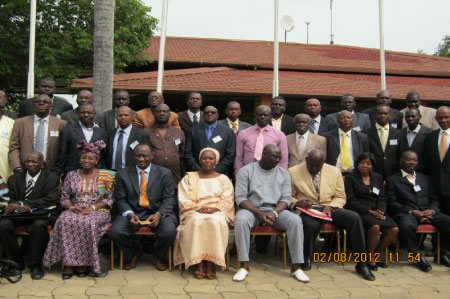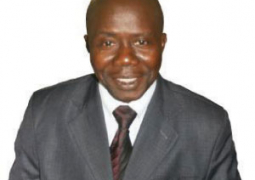
Experts from the ECOWAS member state are meeting in
The validation workshop is being held at the Kairaba Beach Hotel in
Speaking at the opening ceremony, Darbire Bayaornibe, director of Energy at the ECOWAS Commission, expressed his gratitude and appreciation to the Minister of Energy of The Gambia, the entire staff of the Ministry of Energy, and all those who worked tirelessly together with the ECOWAS Commission to organize the important forum.
He also used the occasion to thank the UNDP, particularly their regional office in
He said the white paper is an energy policy document that needs strong political commitment among ECOWAS member states to promote access to energy services.
“It is a shared understanding and great vision, based on the recognition of energy as a priority for development and poverty reduction,” he said.
Bayaornibe, who was depustising the ECOWAS Commissioner for Infrastructure, Ebrima Njie, said the white paper is one of the main documents that established a direct link between energy access and poverty reduction.
According to him, the ECOWAS/UEMOA white paper for access to energy services includes also its own implementation strategy that relies on creating enabling environment for a rapid growth of access to energy services in favour of rural and peri-urban population.
In her official opening remarks, the minister of Petroleum Tenengba Jaiteh, said energy is the backbone of the socio-economic development of any country.
“There is indeed a direct relationship between the absence of adequate energy services and poverty indicators such as infant mortality, illiteracy, life expectancy and total fertility rate,” she said.
Inadequate access to energy also exacerbates the rural urban drift in most developing countries, by driving people to seek better living conditions, the minister said, adding: “Therefore access to affordable and sustainable modern energy services is crucial to human well being and to a country’s economic development.”
It is in recognition of these facts, she noted, that ECOWAS/WAEMU issued a white paper in January 2006, on access to modern energy services, which established targets for member states for increasing access to energy services in rural, urban and peri-urban communities by 2015.
According to Minister Jaiteh, currently only 35 per cent of the total population of The Gambia has access to electricity; about 60 per cent of the urban population and only 6 percent of the rural population.
She said further that to address this situation and in response to the ECOWAS /WAEMU white paper, the Government of The Gambia has embarked on the development of a national investment programme on access to modern energy services.
The programme is designed to support the implementation of the ECOWAS white paper and will also be validated during the forum, she said
Madam Chinwe Dike, UNDP resident representative to The Gambia, was represented at the ceremony by Abdou Touray, a senior programme specialist at the UNDP.
Mr Touray seized the opportunity to thank ECOWAS for the initiative and The Gambia government, through the Ministry of Energy, for hosting the forum.
The exercise is both timely and relevant, and goes to further support the UN Secretary General’s global initiative to achieve sustainable energy for all by the year 2030, he said, adding that the UNDP is proud to be a lead partner of ECOWAS and its member states for the promotion of access to energy services.
Mamma Nyang, chairman of the Gambia National Multi-sectoral Committee on access to energy service, who chaired the ceremony, welcomed the participants to the forum.




